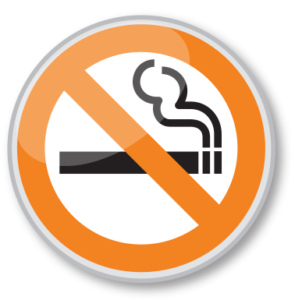 “If at first you don’t succeed, try, try again.” This phrase is applicable to many different situations.
“If at first you don’t succeed, try, try again.” This phrase is applicable to many different situations.
When someone is turned down for a job: try, try again. When a relationship doesn’t work out: try, try again. And Dr. Karen Johnson gives the same advice to those who have tried, and failed, to quit smoking: try, try again.
“It may take several times to quit before they do,” said Johnson, a professor in the Department of Preventive Medicine at the UT Health Science Center. She specializes in smoking cessation, or the process of helping someone to quit smoking through behavioral counseling and medication.
According to Johnson, quitting smoking is the number one best thing a person can do for his or her health. “Cigarettes contain more than 3,000 chemicals that can lead to serious health risks,” she said. “Smoking cigarettes can cause several types of cancer, such as mouth, lung, stomach and cervical cancer and quitting would greatly descrease your chances of getting those types of cancer. Smoking also increases a person’s risk of heart attack and emphysema.”
Johnson understands how difficult it can be to quit smoking—comparing its addictiveness to drugs like heroin. Symptoms of withdrawal include anxiety, sleeplessness and weight gain, which Johnson attributes to food tasting better after quitting smoking. Not only will food taste better, but breathing and sense of smell also will improve.
The good news? Smokers who have tried to quit and failed are more likely to succeed when they try again, Johnson said.
Furthermore, someone who chooses to quit smoking doesn’t have to go it alone.
“Behavioral counseling helps people understand their behavior when it comes to smoking,” Johnson said. “Counseling helps smokers set goals, deal with cravings and avoid triggers that make them want to smoke, such as long periods of driving and stressful situations.”
Quitting smoking may be one of the hardest things that smokers will do in their life, but the benefits outweigh the cost, literally, with the average cost of a pack of cigarettes in Tennessee at $5.30.
“There is no time like the present to quit,” Johnson said. “Reach out for help when you need it and most importantly, don’t get discouraged if you fail. Try, try again.”
Ready to Quit? Help is Available.
Quitting Apps: LIVESTRONG MyQuit Coach, Quit Smoking: Cessation Nation or QuitNow!
Tennessee Tobacco QuitLine (1-800-784-8669) available to those wishing to quit.
 UT Goes Smoke-Free
UT Goes Smoke-Free
As of July 2018, most UT campuses have or will be going smoke-free.
UT Chattanooga will become smoke-free starting in January 2019.
Tips for Quitting
• Set a quit date.
• Make a plan to get rid of ashtrays, lighters and packs around the house.
• Avoid places and people you attribute to smoking.
• Try nicotine gum and patches to help with urges.
• Go to therapy. Quitting is difficult and counseling can help make the transition easier.
• Have your friends and family hold you accountable.
Tags: Health, Tobacco Cessation


